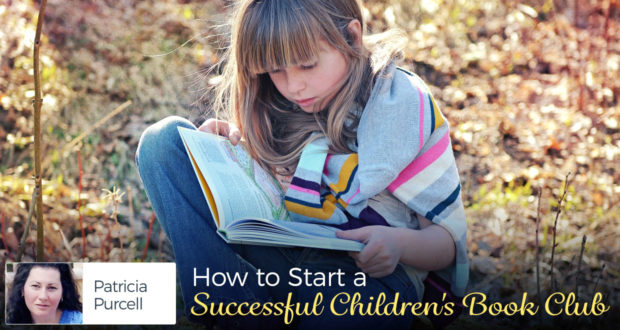Summary
Running a children’s book club takes hard work and dedication but seeing a child bursting with eagerness to talk about a book makes it more than worthwhile.Great literature is one of the most priceless treasures of our culture. As a mother and a homeschooler I have always felt an obligation to share this wealth with my children.
A well crafted story can help to teach life lessons such as love and loss, defeat and triumph, from the safety of a supportive environment. Discussing a story opens the way to questions about the past and the future, and offers a shared experience for all who have read it.
Three years ago I started a book club for my daughter and her friends. At the time I hoped to keep the girls’ interest and make it a success.
I’ve watched with pleasure ever since, as the girls have grown not only in intellect, but also become even closer as a group.
While starting a book club is easy, starting one that will last requires planning and vigilance. Anyone with experience working with groups of children knows the importance of maintaining control.
I have found that careful attention must be given to the membership, rules, and book selections, and allowances must be made for the club to change as needed over time. It is a lot of work for the coordinator, but to me, seeing a child bursting with eagerness to talk about a book makes it more than worthwhile.
How to Build Membership
The first thing to think about when contemplating starting a children’s book club is how to build a membership. The obvious place to start would be in your child’s own circle of friends.
However, you must ask yourself certain questions before extending the first invitation. What age range do you want to attract? In general, I would suggest keeping the age gap to no more than three years, i.e. ages 8-11.
Also consider the habits and temperament of both the child and the parent. Can the child sit still and behave? A child that’s a handful at the park will seem even more hyper in your living room.
Is the parent reliable? Will she make sure that the child gets the book read, and gets to the meetings on time? Is the child willing to read and discuss the assigned books?
Finally, pick a group size limit and stick to it. In general, 8-10 members is ideal. That size group is not overwhelming, but the meetings can still go on if a few members are absent.
A Rules Guide
Next you will want to make a list of rules for the club and furnish each member with a copy. It may seem silly, especially if you are dealing with people that you have known for years, but it’s well worth the effort. Give yourself a guide to refer back to should an issue ever occur.
I once had to clue the mother of a wild-child in to the fact that her daughter was not mature enough yet for our book club. It was awkward and horrible, but at least I could point out the written expectations that were not being met.
Policies that you’ll want to establish right from the beginning are things such as; the regular meeting time and place of the club, rotating snack duty, being both a respectful listener and speaker, dues, etc. I add to my rule list when necessary and review annually with the girls.
Be clear about the rules.
Think of the long term good of the club.
Planning on the Books
You should also plan how the books will be selected. I have talked with others who were not so successful in running their book clubs, and I have also been involved as a member of other clubs.
One thing is clear to me… school age children are not ready to make the club reading selections on their own. If you leave the decision up to the children, they tend either to fight over what to read, or make poor selections. They just don’t have enough reading experience yet (not even the budding bookworms).
For our club, I make the selections. I let the other parents know from the beginning that I would try to choose books that were already classics, or newer but bound to become classics one day. Often these are books that the kids would not choose on their own, but books that should really be read by everyone once.
Watching a girl who is convinced anything written long ago is irrelevant discover a bosom friend in Anne Shirley is a wonderful feeling! It requires time and research to pick the books.
I never assign a book that I haven’t personally read. Keep the ages of the kids in mind.
- Is the plot age appropriate?
- Will most of the members have time to finish the book before the meeting?
- Can you find or write appropriate discussion questions?
- Is there a logical project or activity to go along with the book?
Adapt it Over Time
Finally, to ensure the longevity of your club, you need to be willing to adapt it over time. Kids grow older. Interests and challenges change, and age appropriate books get longer and more complex. Is it time for your club to meet less often to allow for harder books? Is it still necessary for the parents to stay for the meetings, or would it be easier to have less of a crowd?
I recently had to make such changes to my daughter’s club. I explained my reasons to the other parents and found, to my relief, that the club emerged from the changes stronger than ever.
Running a children’s book club takes hard work and dedication. Laying the groundwork well by choosing amenable members, setting clear rules, maintaining control of the book selections, and making changes as needed smooths the process considerably.
My daughter’s club has been such a success for the past three years that I recently formed a club for my younger son made up of the younger brothers of the girls’ club members.
It looks like I’m starting a whole new chapter!

 Seton Magazine Catholic Homeschool Articles, Advice & Resources
Seton Magazine Catholic Homeschool Articles, Advice & Resources

